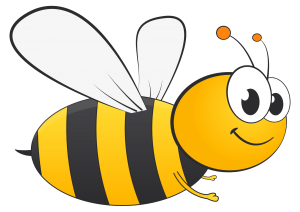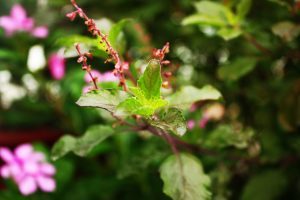There is a growing epidemic around the world caused by unwanted insects specially mosquitoes.
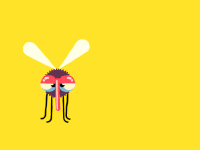
Many major diseases that are caused by mosquitoes and insects around the world include dengue fever , malaria , zika, chickengunia,etc.
Researchers have come up with new synthetic ways to eliminate these threats but these measures have some side-effects and often cause harm to human consumers and pets as well.If used in high quantity like DDT is used,Cancer and many lung disorders can be caused.
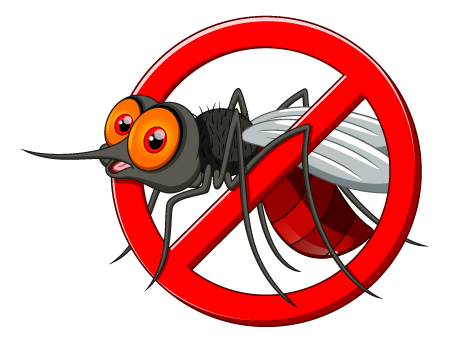
Whatever science or research may say,there are many plants that have natural abilities to repel unwanted insects like mosquitoes , flies , rats , termite etc.
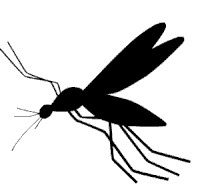
We proudly present these 9 plants which not only keep your environment and atmosphere free from insects,but have many other natural benefits for your health and body as well:
Lavender
Lavender oil has been used as a bug repellent for many centuries. Lavender was used in the past to protect clothes and linens from the infestation of moths and other insects. Lavender oil is used to prevent mosquitoes bites. Lavender is analgesic, insecticidal, antiseptic and calming. These healing properties of lavender are suitable in both preventing as well as soothing insect bites and stings.
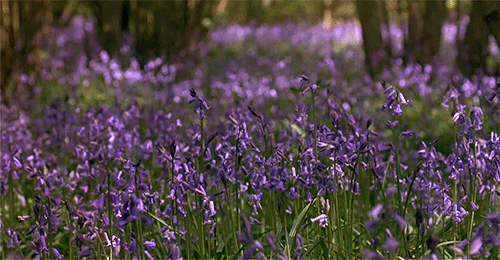
The most unique face about lavender is that unlike some oils that are used to ward off insects, lavender oil isn’t burned in candle form or sprayed as an aerosol.Lavender Oil nourishes your skin with no side-effects. Its aroma is also pleasant when compared to other strong-smelling mosquito repellent creams.The scent of lavender oil also acts as a relaxant and encourages sleep. Major Benefits of Lavender are :
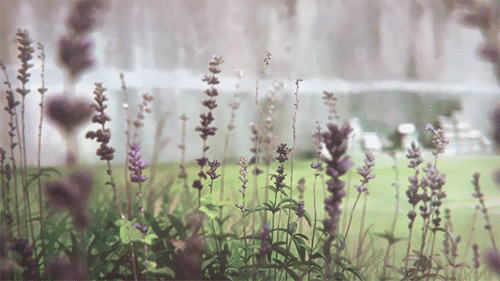
Protecting Other Plants
Lavender can act as a protector for other plants that lack natural abilities to ward off unwanted insects. While birds and bees feed freely from lavender, nearly all other creepy insects avoid its essential oil. Planting lavender near fruit trees can help prevent its infestation with nasty bugs like coddling moths and white flies.
Combating Biting Bugs
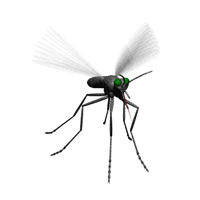
Lavender oil can be used as a bug repellent for both humans and pets when they venture outside. A mist made with lavender oil, lemon and witch hazel applied generously can keep fleas off you throughout the season. Lavender works especially well when combined with other essential oils like citronella. Rubbing lavender on your pulse points – such as behind the ears and insides of the wrists – allows the essential oils to be dissipated by your body heat.
Keeping away Houseflies

Lavender is useful to have in the kitchen because it keeps away houseflies from hanging around. Planting lavender bushes close to the entryways of your home, or even hanging cut sprigs of lavender near doors can also keep many pesky bugs from crossing your threshold.Lavender oil also prevents infections caused by bug bites and controls the itching and inflammation associated with bug bites. Lavender oil also helps control the infestation of fleas, black flies, black beetles, flies, greenflies and white flies.
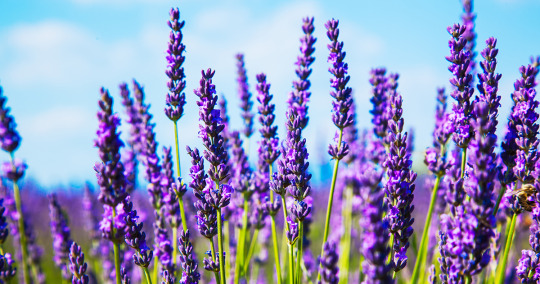
Basil or Tulsi
Basil,also known as Tulsi is known to have repellent properties against houseflies , mosquitoes and ants.Basil is delicious too and generally used with tea,salad , tomatoes,etc to improve flavor and odor.
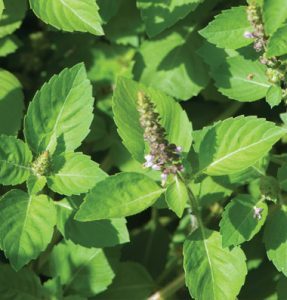
It can be planted inside your house or outside wherever you want to relax and entertain yourself since Basil is said to have soothing properties as well. Basil can repel certain species of spiders and cockroaches as well.
Although more than 60 varieties of basil have been identified, they all fall into three main types:
- Sweet
- Purple
- Bush
Each offers a subtle difference in taste.Basil plants are easy to maintain both indoors as well as outdoors.
There is a popular belief that light attracts mosquitoes and points them towards potential blood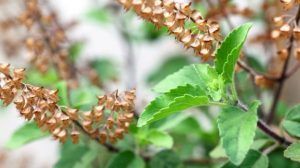 donors viz. us.This is not entirely true.The fact is that these insects have other senses as well.They have an in-built thermal and chemical sensor,to locate their targets. They have a tarsi in the third pair of their legs which notifies them about any temperature difference around their prey.The antennae of a mosquito detects the steam and carbon dioxide that we exhale or exude, along with some other substances that we exhale from our dermis/skin or by the bacteria living on it, such as the lactic acid in our sweat.
donors viz. us.This is not entirely true.The fact is that these insects have other senses as well.They have an in-built thermal and chemical sensor,to locate their targets. They have a tarsi in the third pair of their legs which notifies them about any temperature difference around their prey.The antennae of a mosquito detects the steam and carbon dioxide that we exhale or exude, along with some other substances that we exhale from our dermis/skin or by the bacteria living on it, such as the lactic acid in our sweat.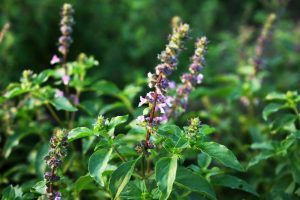 Mosquito repellents usually affect an insect’s sensors, removing their ability to detect targets, so they go away in order to recover them. Among the list of natural volatile compounds that can be used as repellents there are
Mosquito repellents usually affect an insect’s sensors, removing their ability to detect targets, so they go away in order to recover them. Among the list of natural volatile compounds that can be used as repellents there are
- Pyrethrins
- Methyl-nonyl-ketone
- Geraniol
- Estragole
- Citronellal
- Limonene
- Nerolidol

Some of the plants that have traditionally been considered repellents synthesise at least one of the above mentioned substances.Basil (Ocimum basilicum), has not one, but four of these mosquito-repellent volatiles, among which there is a predominance of estragole (1-allyl-4-methoxybenzene), also known as tarragon, methylchavicol or allylanisole.
They are as follows :
- Estragole
- Citronellal
- Limonene
- Nerolidol
In addition, estragole is one of the elements responsible for the typical scent that basil releases when its leaves are rubbed. Tonnes and tonnes of basil oil is produced via steam distillation every year.
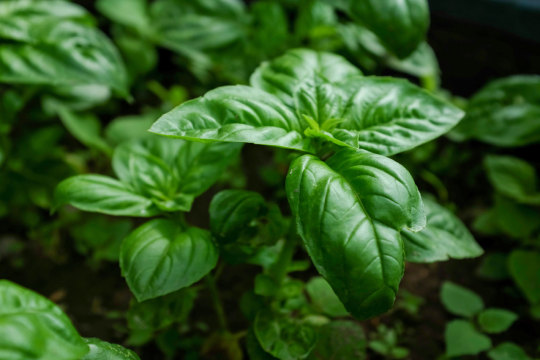
Lemon Grass
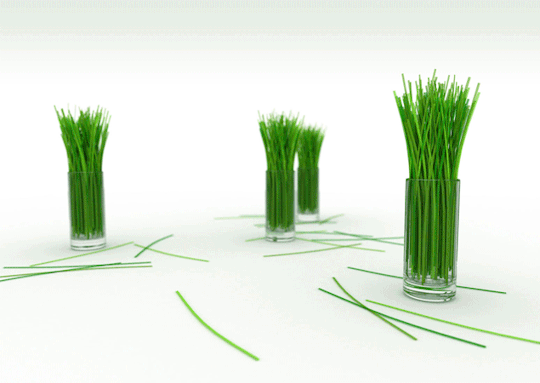
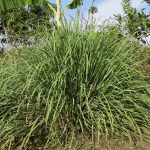
You’ve no doubt seen citronella candles in stores during the summer season.Citronella keeps mosquitoes away. Citronella is a natural oil found in lemongrass, an ornamental that can grow up to 4 feet tall and 3 feet wide in one season. It does well in a pot or in the ground in a sunny, well-drained location. Use its fragrance, narrow leaves in chicken and pork dishes and to flavor soups and salad dressing. Many Asian recipes call for lemongrass.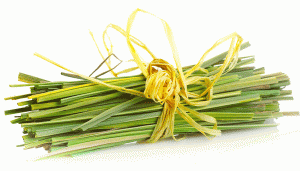 If we assume for a moment, that aroma from this plant wards off mosquitoes, then it is effective for you if you are sitting in or right next to the plant. But the reality is that amount of chemicals given off by plants is very small. You will smell them most when you brush against them or you crush a leaf. Research has confirmed that citronella oil is registered as an insect repellent in the US. Studies in the EU failed to validate its effectiveness and they have banned the product as an insecticide.
If we assume for a moment, that aroma from this plant wards off mosquitoes, then it is effective for you if you are sitting in or right next to the plant. But the reality is that amount of chemicals given off by plants is very small. You will smell them most when you brush against them or you crush a leaf. Research has confirmed that citronella oil is registered as an insect repellent in the US. Studies in the EU failed to validate its effectiveness and they have banned the product as an insecticide.
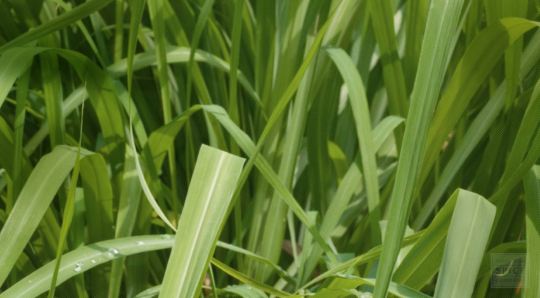
Alliums
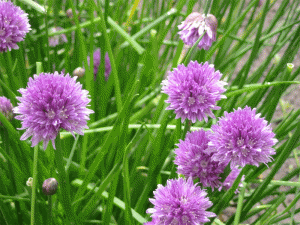
- Plants in the Allium family, such as the dramatic Allium giganteum whose flower heads adorn stalks up to 6 feet tall, are regarded as a broad-spectrum natural insecticide. They repel numerous insects that are found in vegetable gardens, including slugs, aphids, carrot flies and cabbage worms. Plants that will benefit from the proximity of alliums include:
- Tomatoes
- Peppers
- Potatoes
- Cabbage
- Broccoli
- Kohlrabi
- Carrots
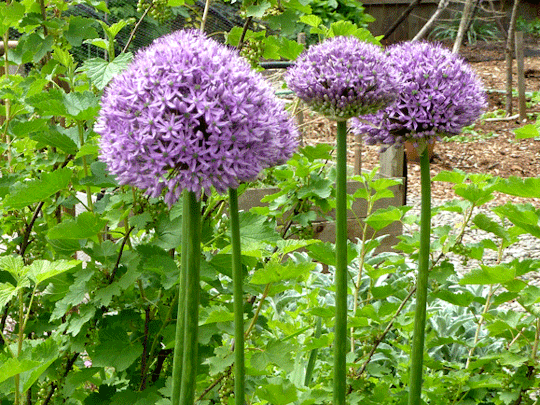
They also keep aphids away from rose bushes. Alliums include small-growing herbs such as chives, garlic chives, leeks and shallots.
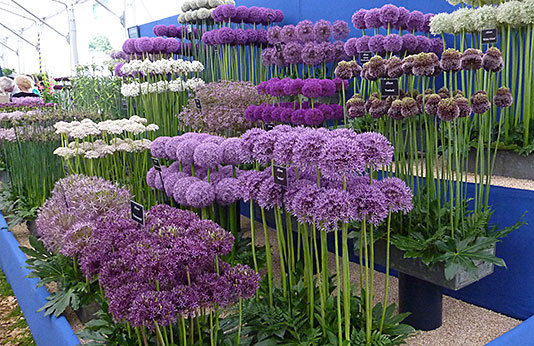
Marigold
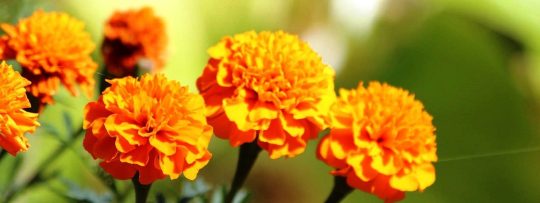
Marigold has many abilities,It can repel mosquitoes , rabbits, grasshopper , spiders , termites and beetels .Marigold is used to extract essential oil by steam distillation.It’s oil is really expensive and used in many perfumes and deodorants.The roots of marigolds are well-known among farmers to repel nematodes, though these qualities take an year to take effect. 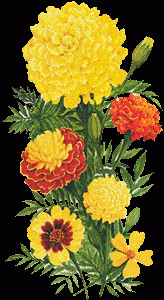 Annual Marigolds can be used anywhere to deter Mexican bean beetles, squash bugs, thrips, tomato hornworms, and whiteflies. They are also known to repel harmful root knot nematodes (soil dwelling microscopic white worms) that attack tomatoes, potatoes, roses, and strawberries. If a whole area is infested, at the end of the season, turn the Marigolds under so the roots will decay in the soil. You can safely plant there again the following spring.Potted marigolds can be positioned near entrances to your home and any common mosquito entry points, such as open windows. The smell may deter mosquitoes from going past this barrier.The pyrethrum in marigolds is a substance that’s used in many repellents. That’s because it can protect the skin from mosquito bites for a fair number of hours. In fact, a recent study has found that the essential oil from Calendula officinalis (a kind of marigold) works a lot like deet when it comes to deterring mosquitoes. However, it only does this for about 2 hours.Marigolds can still grow on moist soil. So to stop mosquitoes from laying eggs near your yard’s water features, build a marigold barrier around it.
Annual Marigolds can be used anywhere to deter Mexican bean beetles, squash bugs, thrips, tomato hornworms, and whiteflies. They are also known to repel harmful root knot nematodes (soil dwelling microscopic white worms) that attack tomatoes, potatoes, roses, and strawberries. If a whole area is infested, at the end of the season, turn the Marigolds under so the roots will decay in the soil. You can safely plant there again the following spring.Potted marigolds can be positioned near entrances to your home and any common mosquito entry points, such as open windows. The smell may deter mosquitoes from going past this barrier.The pyrethrum in marigolds is a substance that’s used in many repellents. That’s because it can protect the skin from mosquito bites for a fair number of hours. In fact, a recent study has found that the essential oil from Calendula officinalis (a kind of marigold) works a lot like deet when it comes to deterring mosquitoes. However, it only does this for about 2 hours.Marigolds can still grow on moist soil. So to stop mosquitoes from laying eggs near your yard’s water features, build a marigold barrier around it.
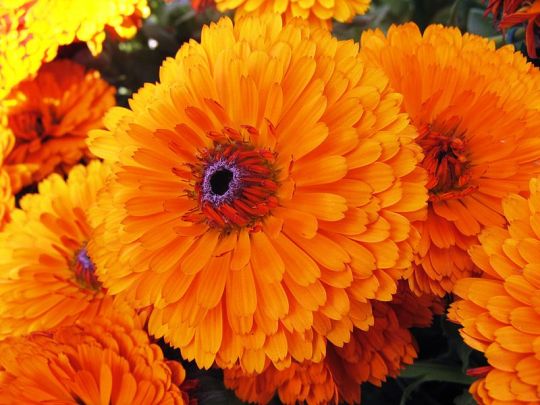
Petunias

Petunias Repel aphids, tomato horn-worms, asparagus beetles, leaf-hoppers and squash bugs.It is the most effective natural pesticide being used in many synthetic pesticides around the world.This specific ornamental plant is present grown all over the Mediterranean, Asia and America.

Pitcher Plant
Pitcher plants are carnivores plants which feed on house flies , mosquitoes , honeybees etc.
It is a good option to stop unwanted insects.Pitcher plants have pitfall traps to capture flies and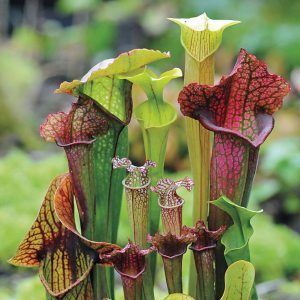 other insects. When Lucrates fly around this plant they fall in its pit and the pit closes to digests the insect.Pitcher plants are famous for their flesh-eating ways, and they rely on slippery surfaces to trap their prey. Its pitcher-shaped traps are made from rolled up leaves, and secrete nectar from their rims to entice their prey. During wet conditions, the rims are coated with a thin layer of water, making them extremely slippery. They have another trick too – tapering wax crystals on the inner walls of the pitcher. These greatly reduce the surface area that insect feet would cling to, and ensure that individuals that fall inside can’t climb back out.
other insects. When Lucrates fly around this plant they fall in its pit and the pit closes to digests the insect.Pitcher plants are famous for their flesh-eating ways, and they rely on slippery surfaces to trap their prey. Its pitcher-shaped traps are made from rolled up leaves, and secrete nectar from their rims to entice their prey. During wet conditions, the rims are coated with a thin layer of water, making them extremely slippery. They have another trick too – tapering wax crystals on the inner walls of the pitcher. These greatly reduce the surface area that insect feet would cling to, and ensure that individuals that fall inside can’t climb back out.
Sarracenia – This North American pitcher plant lures the flies and wasps with nectar, before they fall in. Hairs pointing down spring them back if they try to climb up. It’s too narrow for wings, and if they try to use their wings it creates a vacuum sucking them down.
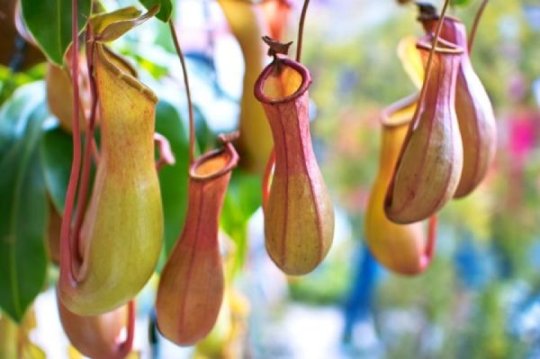
Rosemary
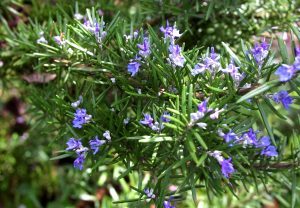
Rosemary is woody perennial herb and it is an evergreen plant with pointy leaves and wood stem. According to an ancient legend Virgin Mary spread her cloak over rosemary that’s why it is known as a rose of Mary.It has urosolic acid , rosemaric acid , camphor which are excellent insect repellents.It is typically prepared as a dried herb or a dried powdered extract, while teas and liquid extracts are made from fresh or dried leaves.The herb has been hailed since ancient times for its medicinal properties. Rosemary was traditionally used to help alleviate muscle pain, improve memory, boost the immune and circulatory system, and promote hair growth.
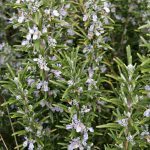 Rosemary is a rich source of an anti-oxidant and an anti-inflammatory compound, and helps in boosting your immune system and improve blood circulation.Rosemary plays an important role in neutralizing harmful particles called free radicals.In Europe, rosemary is often used to help treat indigestion. In fact, Germany’s Commission E has approved rosemary for the treatment of indigestion.
Rosemary is a rich source of an anti-oxidant and an anti-inflammatory compound, and helps in boosting your immune system and improve blood circulation.Rosemary plays an important role in neutralizing harmful particles called free radicals.In Europe, rosemary is often used to help treat indigestion. In fact, Germany’s Commission E has approved rosemary for the treatment of indigestion.
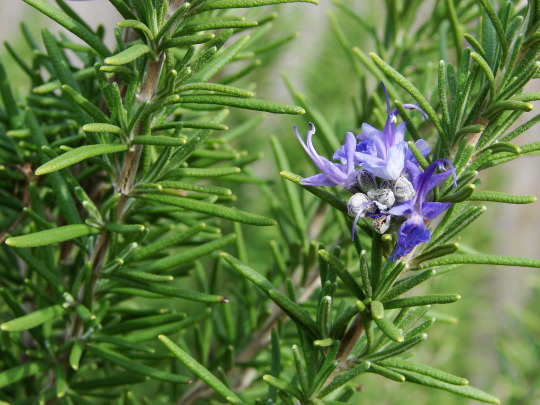
Chrysanthemums
Chrysanthemums repels roaches, ants, Japanese beetles, ticks, silverfish, lice, fleas, bedbugs, spider mites, harlequin bugs and root nematodoes . Pyrethrum is the major element of Chrysanthemums Because pyrethrums can kill flying and jumping insects.They are used in America’s most commonly available home and garden insecticides and are frequently used as indoor sprays, pet shampoos and aerosol bombs. Although chrysanthemum flowers can be used to make an insecticidal spray, pyrethrum can be carcinogenic to humans and care should be taken while using it..
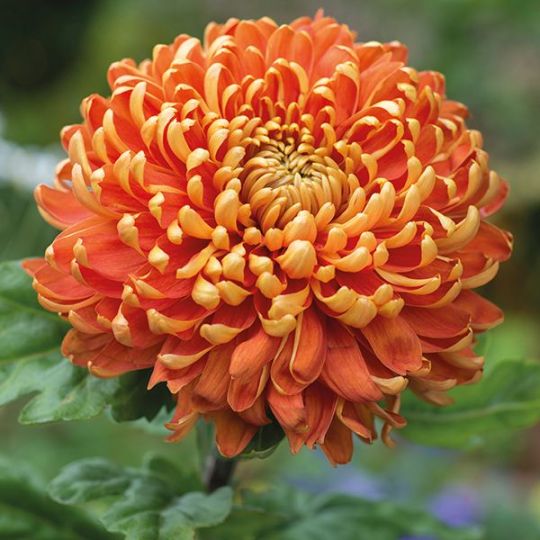
[ YOU MAY ALSO BE INTERESTED IN : Effect of Music on Plants ]


